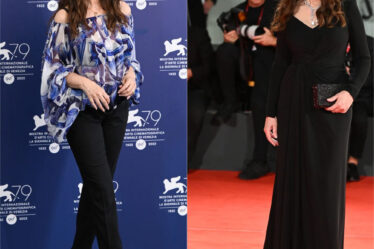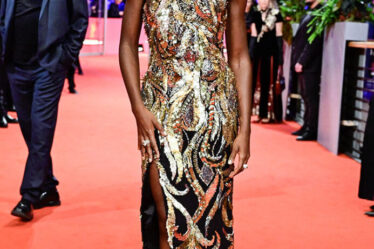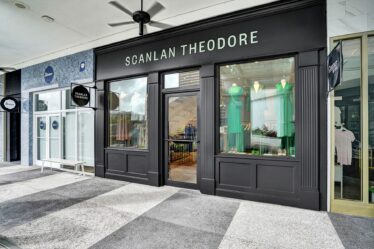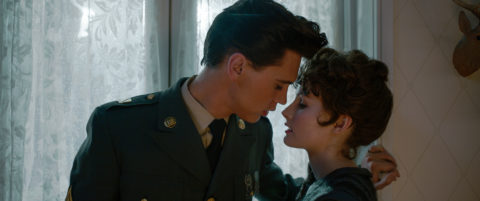
The actor’s transformation into Elvis’s ex-wife entailed custom designer pieces, transformative makeup and a colossal collection of wigs.
After playing Priscilla Presley on the big screen, Olivia DeJonge is a new woman. When she began working on Elvis pre-pandemic, the Australian actor was just 20 years old — or as she says, a “newborn.” Three years later, with filming wrapped and the real Priscilla Presley’s stamp of approval secured, DeJonge has unlocked a different side of herself. “There’s a before Elvis [me] and there’s an after Elvis [me],” she explains. “It’s a pivotal moment in my life.”
Elvis, directed by Baz Luhrmann and starring Austin Butler as the titular idol, is a disorienting and bedazzled ride through time. The biopic, out June 24, details the decades-long exploitation of the singer by his manager, Colonel Tom Parker (Tom Hanks).
Guided by era-defining fashion, the film transcends the ‘50s, ‘60s and ‘70s. For Olivia DeJonge, who plays Elvis’s ex-wife Priscilla Presley, that journey is filled with custom Miu Miu and Prada outfits, transformative makeup and dramatic hair changes. “Those 30 years [saw] huge changes in fashion, particularly for women,” she says. “And I think it reflected where Priscilla was in her life.”
Doing the fashion icon justice was no small feat, and Olivia DeJonge is constantly being remade throughout Elvis. “Every scene was kind of a different look,” she says. “We had maybe 10 or 12 wigs to choose from.”
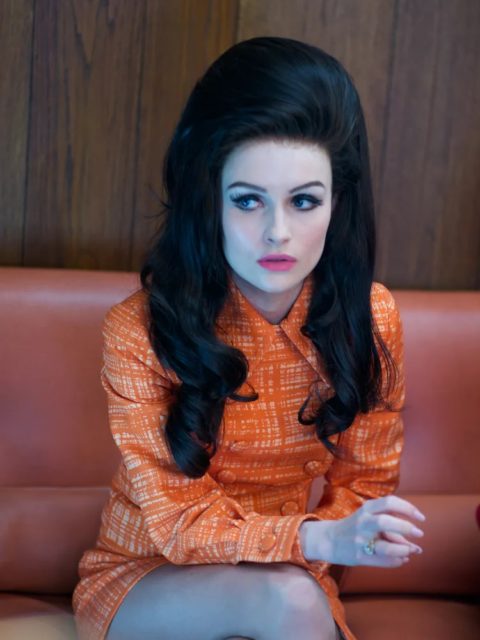
At just 14 years old, Priscilla became tied to the superstar’s identity before she had a chance to develop her own. The film follows her as she goes from a wide-eyed teen to a silently struggling wife to an independent divorcee.
We first see her wearing a girlish updo with swooping baby hairs and natural makeup. She transforms after meeting Elvis, sporting her signature sky-high bouffant and glamorous mod style. By the end of their marriage, she has long, voluminous curls and more practical clothes. “She’s freer,” DeJonge notes.
Costume designer Catherine Martin collaborated with Miuccia Prada to bring Priscilla Presley’s fashion legacy to life. Some looks referenced past outfits, while others put a contemporary twist on her style.
DeJonge’s personal favourite? A glistening beaded number inspired by what Ms. Presley wore to an Elvis concert in Las Vegas. “Stepping into pieces that reflected [Priscilla] made me feel closer to her in a way,” she says.
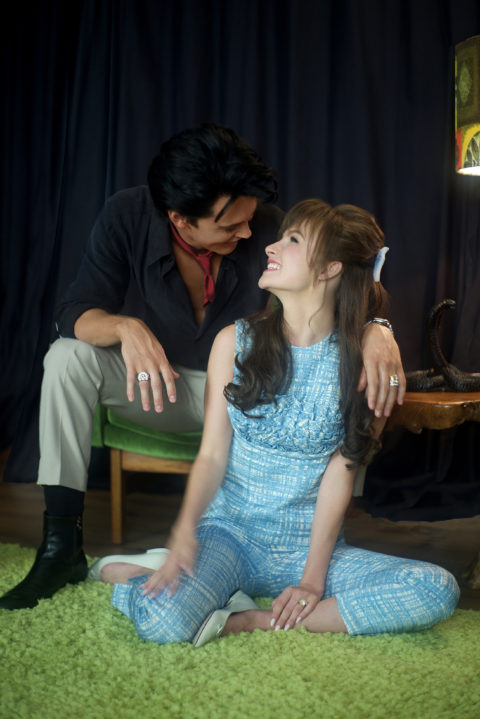
Elvis is an undeniable ode to the rock-n-roll singer, but if you look closely, his ex-wife’s fashion tells a story of its own. “I think the way that she took control of her life was [in] the way that she presented herself to the world, [because] so much of her life was out of her control,” says DeJonge. As such, the film casts a sartorial spotlight on Priscilla Presley’s self-discovery.
Below, Olivia DeJonge chatted more with FASHION about the costumes in Elvis what she learned about herself throughout this process and her experience tearfully bonding with Priscilla Presley over the film.
When you played this role, what parallels did you see between Priscilla’s style evolution and her personal journey?
We go from the ‘50s, she’s younger, and she doesn’t fully know herself yet. And then we’ve got the ‘60s, where perhaps Elvis has a lot of say in what she’s wearing and how she’s dressing. And then in the ‘70s, she’s taking a hold of her life, she’s freer. She wears jeans, flats and she’s got the Farrah Fawcett wig. Every scene was kind of a different look. We had like, maybe 10 or 12 wigs to choose from.
One thing that struck me about Priscilla was her aura of quiet sadness and soft strength. Can you talk about the process of conveying Priscilla’s nature through unspoken aesthetics?
From the get-go, I had always seen her as sensitive and to herself, but I think it would have been an obvious choice to play her as small. I think there’s strength in softness, there’s strength in vulnerability, there’s strength in femininity, which are all things that I myself had to learn about who I was too. So it was an interesting life parallel to the film.
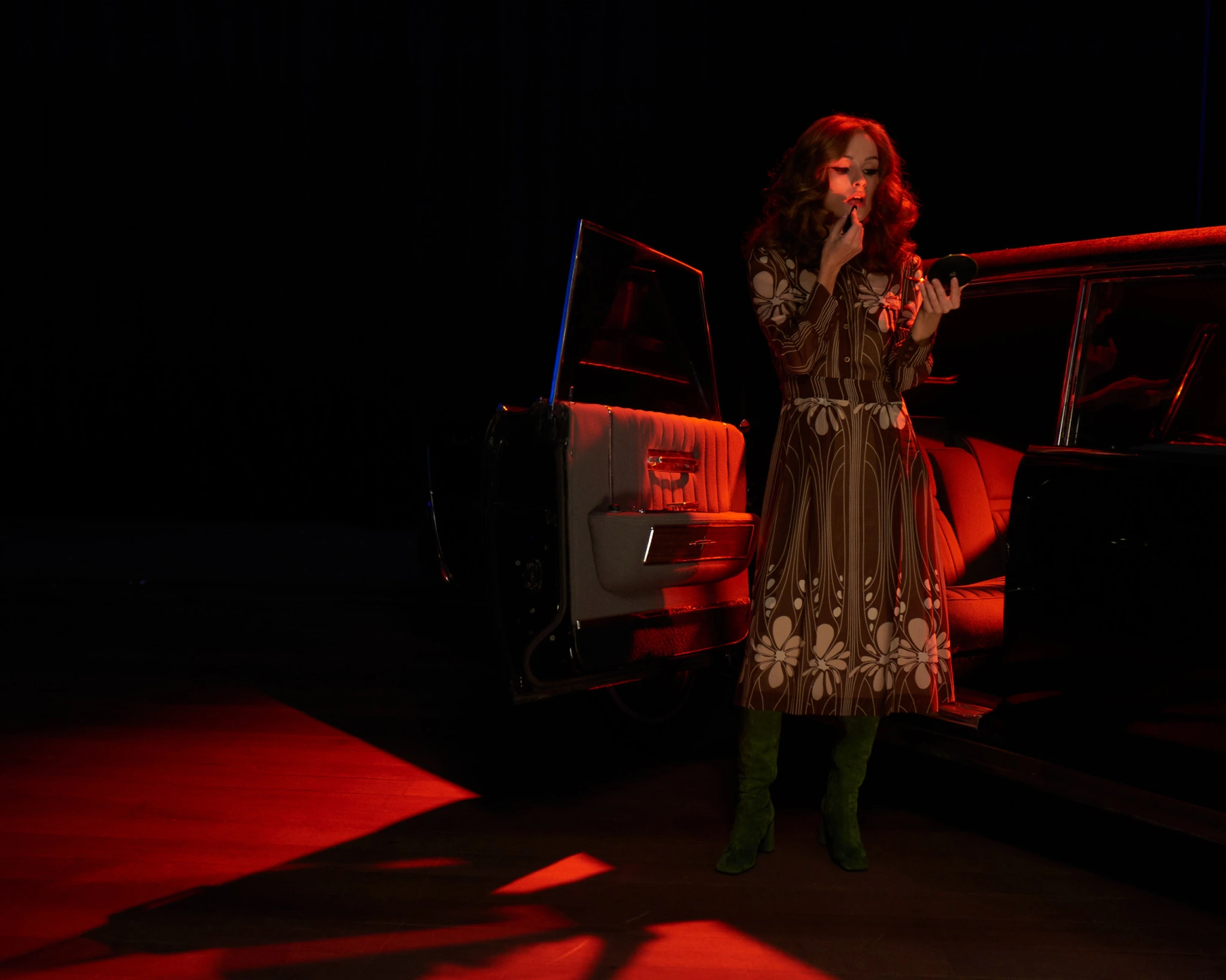
You mentioned there’s a pre- and post-Elvis Olivia DeJonge. Can you explain that distinction?
Pre-Elvis, I kind of felt like a Bambi, like a newborn. I was younger — it’s been like three and a half years now. I kind of felt like I was bumping around and I didn’t know how to center myself. As a director, Baz [Luhrmann] will push you to your limits…And through uncomfortableness comes a lot of growth. Post the job, I feel way more grounded, way more centred and way more in touch with my femininity. I also have a whole new appreciation for aesthetics, fashion, hair and makeup…I stepped away from [this experience knowing] it’s another mode of self-expression, and how integral that is to being human.
What was it like meeting Priscilla Presley after making the film?
It wasn’t truly until Cannes [Film Festival] that we probably got to sit down, talk about things and get to know each other. She’s a huge fan of the film and said some beautiful things to me. By the end of the screening, we were sitting next to each other holding hands and crying, so that’s all you can really ask for.

